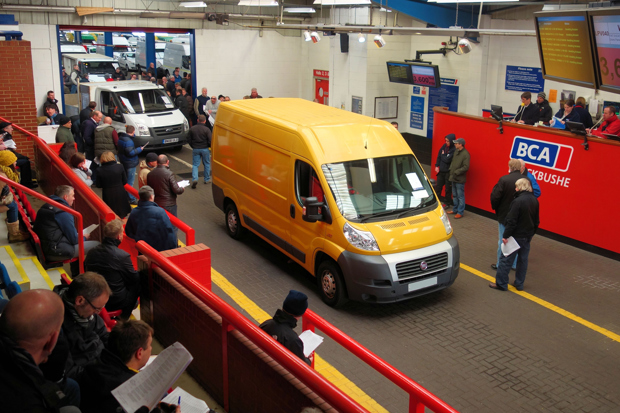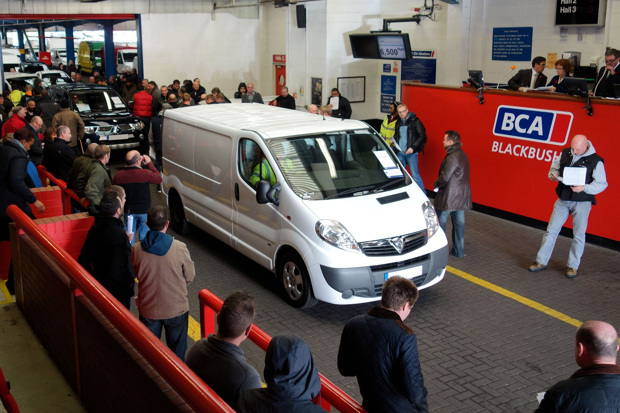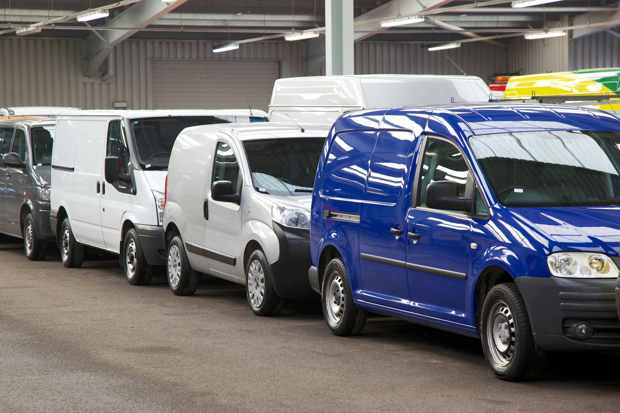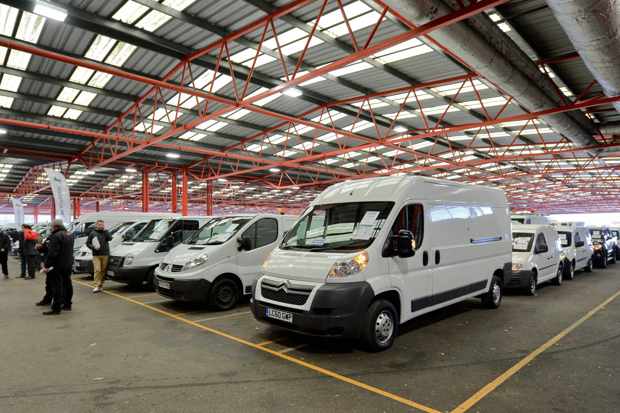How to buy a van at auction: Everything you need to know
An auction is often the best place to buy a used van below its retail value, but while the savings can be substantial, the risks are also much greater. Here's our complete guide.

- How do van auctions work
- How to successfully buy at auction
- What are the risks?
If you're looking to buy a van, you've probably come across van auctions.
Van auctions are where most traders source their stock from - and traders are in business to make a profit. This means that the price you pay at auction is generally much lower than it would be elsewhere. It’s by far the most attractive reason for buying a van this way.
In addition, auction houses have to establish title to any vehicle they sell. This means any vehicle you buy from an auction house is yours once sold. There should be no comeback regarding outstanding finance.
You’re also protected if the van turns out to be stolen or cloned, so auction companies are generally very diligent about checking such things. The auction house acts as an agent for the seller, so has a legal duty to clear title with the vendor and record details of the new keeper, which in this case would be you.
You’ll also save money if you’re not too fussed about a van’s cosmetic appearance. Unlike buying from a dealer, auction lots are presented ‘warts and all’, so if you’re not fussed about a few small dents or marks, you can buy the van ‘as is’ and save quite a bit of cash in the process.
How do van auctions work?
An auction of any kind is an open sale in which the buyer sets the price. Each item, or ‘lot’, is sold to the highest bidder, although often the vendor sets a reserve, which is the lowest price they’re prepared to accept.
During the auction, each individual lot is sold via a time-limited bidding process – usually around a minute – and bids are accepted from inside the auction hall, as well as by telephone and those placed in advance, known as ‘proxy’ bids.
Assuming the reserve is met, whoever places the highest bid wins and from the moment the hammer drops, they become legally bound to complete the purchase. There’s no backing out without penalty, so it’s not for the faint-hearted...

How to buy a van auction
If this is your first time buying at auction, we’d highly advise going to a physical sale and not just blindly bidding online. Indeed, it would make sense to go to an auction before the one at which you plan to buy.
Inspect the sales catalogues beforehand. Most auctions houses publish these online a few days in advance of the sale and some will use National Association of Motor Auctions (NAMA) grading.
This scores the vehicle between one and five, highlighting areas where cosmetic attention may be needed. Be aware that this is purely a visual inspection, not mechanical. Even so, it’s good to do your homework on any potential purchase before the sale.
You should also check a potential purchase’s previous MoT history, which will highlight any advisories and failures from past inspections.
Auction houses each have their own rules about those wishing to buy, with many of them requiring you to register and place a deposit before being allowed to bid. This will be returned should you choose not to buy.
Security is also a high priority, so you will usually be required to provide identification when placing your deposit. Others are trade-only, so you may not even be allowed to bid, unless you know someone in the motor trade who can do this for you.

The bidding process
As for the bidding process itself, when the sale starts, you need to make your bids clear to the auctioneer with a raised hand. Don’t believe what you might have seen on TV and think that a nod or wink will have the desired effect. And don’t worry that you might buy something by accident by scratching your nose.
Also, fix your budget in advance and don’t get sucked into auction fever. The price you’re prepared to pay is just that, so don’t get carried away in your determination to ‘beat’ any other bidders. If a van goes beyond budget, there’ll be another…
When the bidding starts wait to see how many other bidders there in the room are taking an interest and work out how much leeway there is between the opening price and your maximum budget. This will give you some idea of your chances of winning.
Bear in mind that auctions have buyers’ fees attached and they’re sometimes as high as 25% of the hammer price on top. They will be displayed on the premises, so do make sure you’re familiar with these and factor them into your bid.
It’s also important to remember that you don’t need to be involved in a bidding war from the start – the last bid is the most important one.

Finalising the purchase
When the hammer comes down, the auction ends and the sale is legally binding. If your bid has won, you’ll be asked to complete the sale – most auction houses allow a holding deposit and a window of time in which to pay, but this is often no more than 72 hours.
After this you will be legally liable for late payment and storage charges. If it’s all paid up and you’ve sorted insurance, then there’s no reason why you can’t collect the paperwork and drive away on the day.
The auction house acts as an agent for the seller and so is obliged to notify the DVLA of any change of ownership or keeper while providing the name and address details when it sells a vehicle.
It will update the V5C registration document before it hands over the vehicle to you and will give you the green slip with which to tax the vehicle.
What are the risks of buying at auction?
Here’s where many people get cold feet. The terms and conditions of an auction generally offer very little buyer protection.
In buying a vehicle this way, you’re waiving the rights you’d have from a dealer that are normally provided by the Consumer Rights Act (2015), as they do not apply to vehicles sold in what’s essentially a trade-to-trade environment.
Auction warranties usually only extend to the van not being stolen and having no outstanding finance. Depending on value, some auction houses offer enhanced warranties. This is usually advertised on the premises and again doesn’t offer the same protection as buying from a dealer.
It’s generally a quick check of all the essential fluids and controls carried out on site, to give the buyer a better understanding of what they may be buying.

There’s a risk, then, that you buy a vehicle with an underlying problem. Most dealers factor this into what they’re prepared to pay for a van – and that’s where the massive savings come in, but only if you get lucky.
While there will be a chance to inspect any vehicle while parked up at the auction premises, you won’t be able to test drive it and the only time you’ll hear it running is as it goes through the auction – that’s if it’s a physical sale. If it’s sold online, you may not even get that. Vehicles are sold ‘as is’, with all faults. There is no legal requirement for the auction house to declare any.
In short, you’re buying at a price below retail and you’re buying blind. This should be reflected in the final cost. The theory being that you should have some margin left between auction price and retail to fix any problems. Sometimes you get lucky. Occasionally you don’t. It’s all dependent on the level of risk you’re prepared to take.
